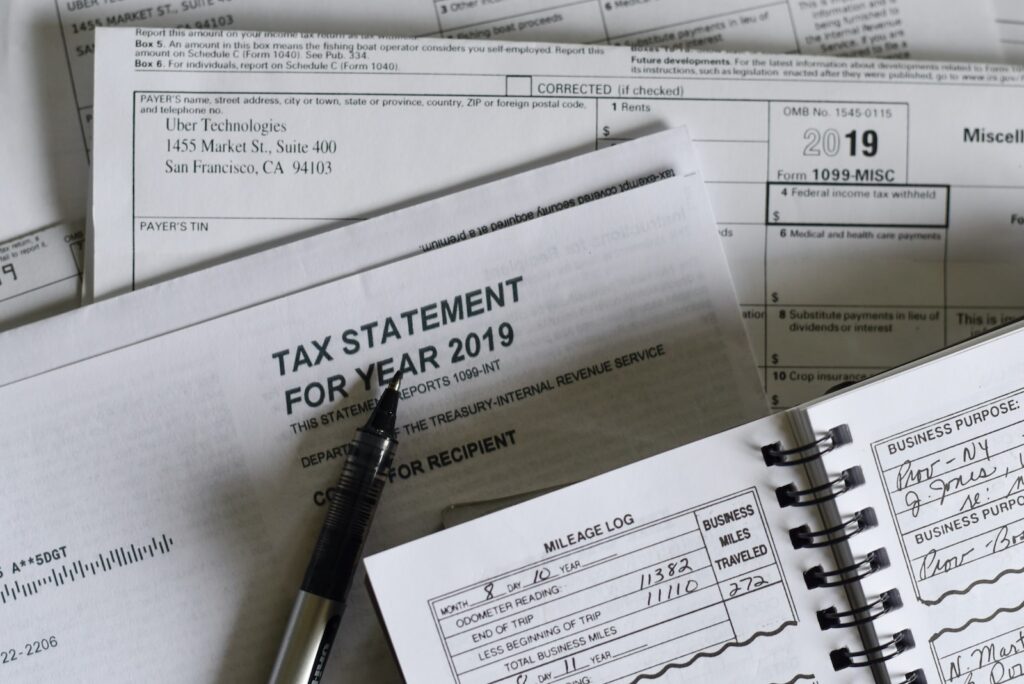Beginner’s Guide to Asset Protection for Real Estate Investors: Reducing Tax Liability
Are you a real estate investor, borrower, or lender? If so, you know how much of a burden taxes can be on your finances. However, there are ways to protect your assets and reduce your tax liability, allowing you to keep more of your hard-earned money and increase your profits.
In this beginner’s guide, we’ll explore the basics of asset protection for real estate investors and how you can reduce your tax liability. We’ll break down the steps you need to take, highlight best practices, and provide examples of how reducing tax liability can be used for maximum effect. Whether you’re just starting out or looking to optimize your existing strategy, this guide will provide you with the knowledge you need to protect your assets and minimize your tax liability. So let’s dive in!
Understanding Asset Protection
Asset protection is the process of safeguarding your assets from potential creditors or legal judgments. It is an essential aspect of financial planning for real estate investors, borrowers, and lenders. By protecting your assets, you can reduce your exposure to risk and minimize your tax liability.
Understanding Tax Liability
Tax liability is the amount of tax owed to the government by an individual or business entity. It is the total amount of tax that is calculated based on the taxpayer’s income, deductions, and credits. Tax liability can be reduced by taking advantage of deductions, credits, and other tax-saving strategies. Reducing tax liability is important because it can help individuals and businesses keep more of their hard-earned money and increase their profits.
In the real estate industry, reducing tax liability is critical to achieving financial success. Real estate investors, borrowers, and lenders can use various strategies to minimize their tax liability and protect their assets. For example, they can utilize tax-advantaged accounts like individual retirement accounts (IRAs) or 401(k)s to reduce their taxable income. They can also maximize their deductions by deducting expenses like property taxes, mortgage interest, and maintenance costs.
In addition, real estate investors can consider entity structuring, such as forming a limited liability company (LLC) or corporation, to minimize their tax burden and protect their assets. They can also take advantage of cost segregation, a strategy that allows them to identify and reclassify assets in a commercial property to accelerate depreciation and reduce taxable income.
The Benefits of Reducing Tax Liability
Reducing your tax liability can provide you with several benefits that can significantly impact your financial success as a real estate investor. Here are some of the most significant advantages of reducing your tax liability:
Maximizing Your Profits:
As a real estate investor, the goal is to maximize your profits. By reducing your tax liability, you can keep more of your profits and reinvest them back into your business. These funds can be used to expand your portfolio, purchase new properties, or cover any unforeseen expenses. The more money you can keep in your pocket, the more you can grow your business and achieve your goals.
Increasing Cash Flow:
Another benefit of reducing your tax liability is the increase in cash flow that it can provide. By lowering your tax bill, you can free up cash that can be used to grow your business. This extra cash can be used to pay down debt, make necessary repairs, or invest in additional properties. It can also provide a cushion in case of emergencies or unexpected expenses.
Protecting Your Assets:
Real estate investing can be risky, and it’s essential to take steps to protect your assets. Reducing your tax liability can help protect your assets from potential creditors or legal judgments. By implementing tax strategies that reduce your tax burden, you can keep more of your hard-earned money and protect your assets for the future.
Providing Peace of Mind:
Reducing your tax liability can also provide peace of mind. By taking steps to minimize your tax liability, you can rest assured that you are operating within the bounds of the law and protecting your assets. This can reduce stress and help you focus on growing your business and achieving your goals.
Overall, reducing your tax liability can provide significant benefits for real estate investors, borrowers, and lenders. By maximizing your profits, increasing your cash flow, protecting your assets, and providing peace of mind, you can position yourself for success in the real estate market.
Steps to Reduce Your Tax Liability
Reducing your tax liability requires careful planning and execution. Here are the steps you need to take:
- Understand the tax code: To reduce your tax liability, you need to understand the tax code and identify tax-saving opportunities. For example, you may be eligible for deductions or tax credits that can lower your tax bill.
- Maximize your deductions: Deductions can help reduce your taxable income, which in turn lowers your tax liability. As a real estate investor, you can deduct expenses such as property taxes, mortgage interest, repairs, and maintenance costs.
- Utilize tax-advantaged accounts: There are several tax-advantaged accounts that you can use to reduce your tax liability. For example, you can contribute to a retirement account like an IRA or 401(k) to reduce your taxable income.
- Consider entity structuring: Entity structuring is the process of organizing your business in a way that minimizes your tax liability. For example, you may want to consider forming a limited liability company (LLC) or a corporation to protect your assets and reduce your tax burden.
- Work with a tax professional: A tax professional can help you identify tax-saving opportunities and ensure that you are in compliance with tax laws and regulations.
Best Practices for Reducing Tax Liability
Here are some best practices to keep in mind as you work to reduce your tax liability:
- Keep detailed records: Keeping accurate and detailed records of your income and expenses is essential for reducing your tax liability.
- Stay organized: Staying organized can help you identify tax-saving opportunities and ensure that you are in compliance with tax laws and regulations.
- File your taxes on time: Failing to file your taxes on time can result in penalties and interest charges, which can increase your tax liability.
- Review your tax strategy regularly: Tax laws and regulations change regularly, so it’s important to review your tax strategy regularly and adjust it as necessary to take advantage of new opportunities and avoid potential pitfalls.
- Consult with a legal professional: It’s always a good idea to consult with a legal professional to ensure that your asset protection and tax strategies are compliant with applicable laws and regulations.
Examples of Reducing Tax Liability for Real Estate Investors
Here are a few examples of how real estate investors can reduce their tax liability:
1. Depreciation:
- Real estate investors can deduct the cost of their investment property over time through depreciation. This can significantly reduce their taxable income and lower their tax liability.
2. 1031 Exchange:
- A 1031 exchange allows real estate investors to defer paying capital gains taxes by reinvesting the proceeds from the sale of a property into a similar property. This can help investors maximize their profits and reduce their tax liability.
3. Cost Segregation:
- Cost segregation is the process of identifying and reclassifying assets in a commercial property to accelerate depreciation and reduce taxable income. This can be a powerful tax-saving strategy for real estate investors.
Final Words
Reducing your tax liability is a critical aspect of asset protection for real estate investors, borrowers, and lenders. By understanding the tax code, maximizing your deductions, utilizing tax-advantaged accounts, considering entity structuring, and working with a tax professional, you can reduce your tax liability and keep more of your hard-earned money.
Remember to keep detailed records, stay organized, file your taxes on time, review your tax strategy regularly, and consult with a legal professional to ensure that your asset protection and tax strategies are compliant with applicable laws and regulations. We hope this beginner’s guide has provided you with valuable insights and information that you can use to succeed in the real estate market.
What steps have you taken to reduce your tax liability as a real estate investor? Share your experiences and insights in the comments below!

